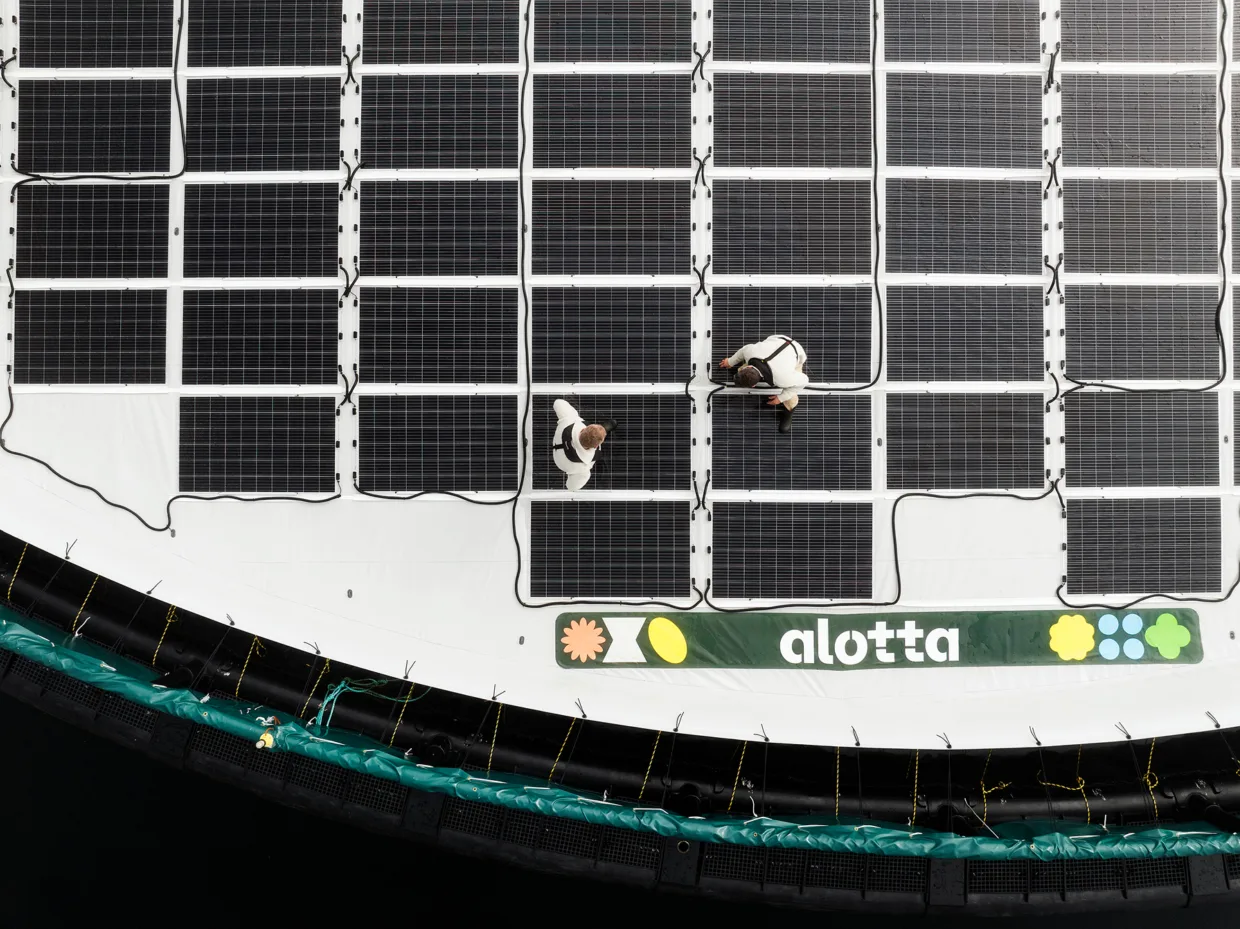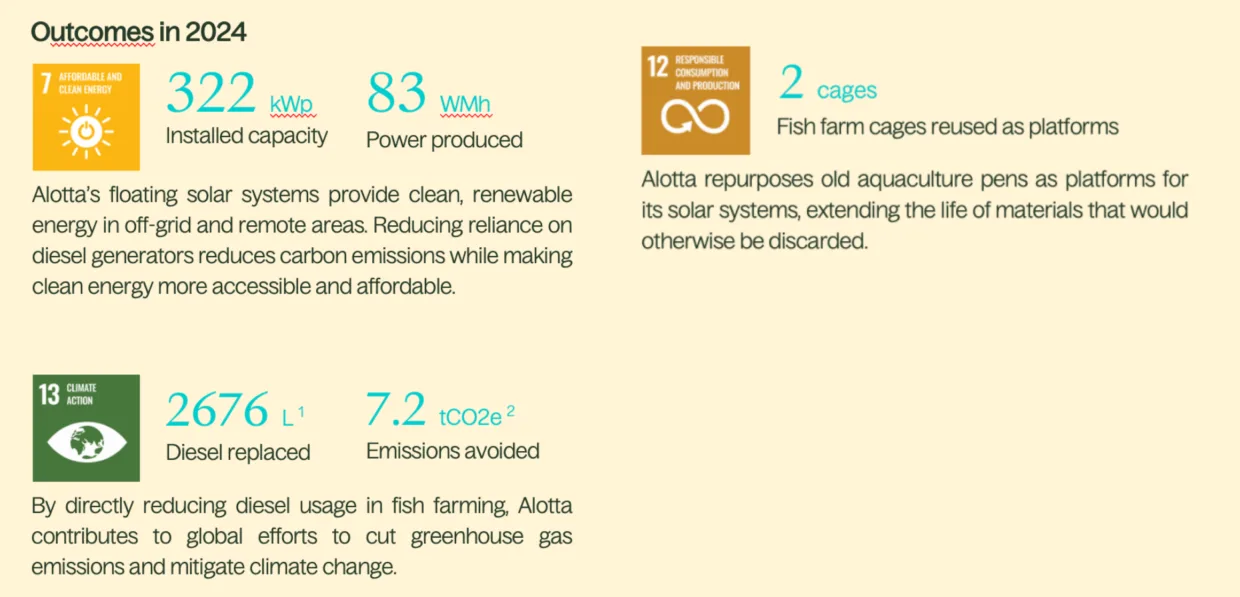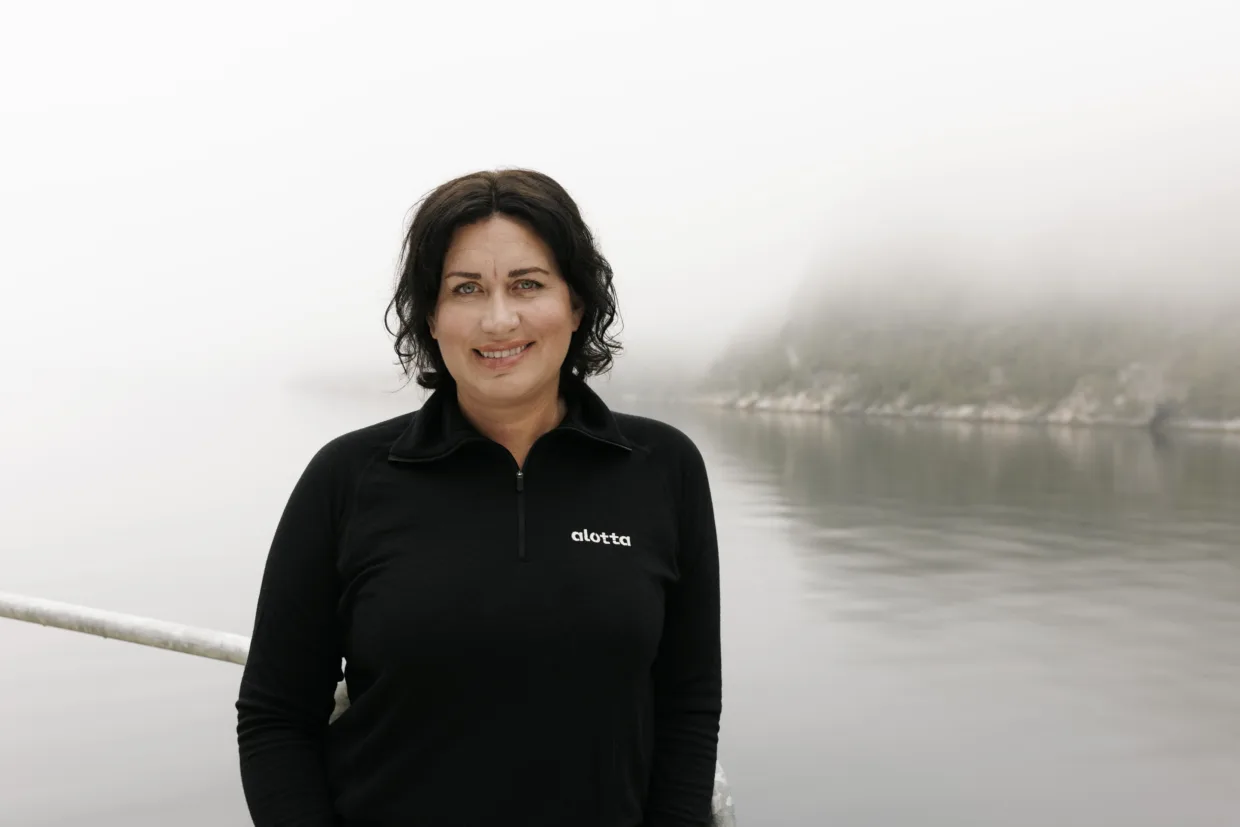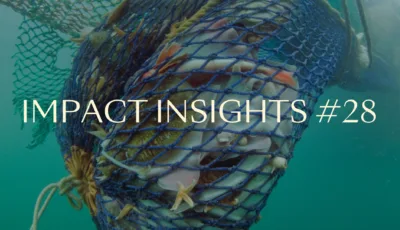Alotta: Clean energy from fish farms to island communities

In many parts of the world, communities and industries still rely entirely on diesel for their operations. It’s noisy, expensive, polluting, and often the only available option when access to clean energy is limited or non-existent. Alotta is working to change that.

Alotta is replacing diesel with renewable energy where it’s most needed. Its floating solar power plants already operate in Norway and Chile, but the potential use cases are numerous, and isolated aquaculture farms are only the start.
The challenge: clean energy remains out of reach
The global energy demand is rising, but access to clean energy remains limited in many rural and offshore regions of the world, due to inadequate connectivity and infrastructure. From fish farms along the Norwegian coast to remote islands where 750 million people live, fossil fuels are often still the only option to power infrastructure. In Chile alone, more than 300 fish farms are run entirely on diesel, which generates emissions, noise, and affects working conditions.
Although photovoltaic solar energy systems present a compelling solution for cleaner electricity generation, they can require substantial land areas and encroach upon natural habitats or agricultural land, leading to habitat disruption and loss of biodiversity.
Alotta's mission is to bring clean energy systems to off-grid locations without disturbing the natural environment. Their first focus has been aquaculture, but the same challenge exists across geographies and industries.
Alotta’s recipe for change
Alotta’s first product, Alotta Solar Hybrid, is a floating solar energy platform designed to deliver clean and reliable energy to aquaculture facilities, even in tough marine conditions. The system repurposes fish farming pens that are no longer in use. These pens are fitted with solar membranes and panels, and connected directly to a fish farm’s barge, providing clean energy in as little as two days.
The technology was first deployed in Norway, where it was met with skepticism from on-site operators. But once installed, the system won them over. Crews working on the farm proudly showcase the quiet, efficient energy solution to visiting clients.
In the second quarter of 2025, Alotta installed its first solar power plant in Chile. The company is also in commercial discussions with aquaculture companies in Turkey, where fish farming operations rely heavily on diesel, and solar conditions are excellent.

In conversation with Alotta CEO, Kari-Elin Korsnes Hildre
It’s been a big year for Alotta. We spoke with Kari-Elin Korsnes Hildre, CEO, to get her take on the past few months: the wins, the lessons, and what’s ahead for their innovative products.

What has your collaboration with Norselab brought you so far?
Norselab joining us in early 2024 has been very valuable, and they’ve contributed more than capital. The collaboration is close and hands-on, with regular and informal dialogue that helps us stay focused and move quickly. They’ve been a useful sparring partner on strategic and operational matters, from exploring new markets to refining our sustainability positioning and business model.
They also supported us through rebranding, resulting in our new name, identity, and a brand that reflects our culture, ambitions, and commitment to accelerating the global energy transition.
What were the highlights of 2024?
2024 was a defining year for Alotta. The investment from Norselab — and the strong recognition that came with it — was a major milestone. It marked a clear vote of confidence in both our mission and our potential to scale.
We also secured new strategic agreements, including market exclusivity in Turkey through our partnership with AKVA Group.
Internally, our eight-person team played a central role in pushing the company forward. Everyone went above and beyond to deliver on key milestones — a testament to the dedication and drive that define our culture.
What are the plans for 2025?
A defining moment for 2025 was installing the first system in Chile. Despite some initial skepticism from local operators, the technology has been warmly received and is already changing clients' views of clean energy integration.
Growth is on the horizon: Alotta plans to hire for key roles and continue building capacity to meet increasing demand. With ongoing expansion into other sectors and geographies — including dams and off-grid islands — the company aims to bring clean energy solutions to even more places where diesel is still the default.
This piece was originally published in our 2024 Meaningfulness Report.


